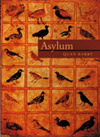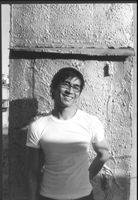Whether you’ll be traveling or relaxing at home during the upcoming holidays, it’s a great time to polish off an old reading list or to start in on something new. As our gift to you this season, and to help you get started on your own holiday reading list, we’ve asked members of the LR Staff to recommend some of their recent favorites. Here are our suggestions.
Asylum | Quan Barry | University of Pittsburgh Press (2001)
Recommended by Mia: “My holiday reading pick . . . it’s her first collection. Her engagement with the voices and subjects of the Vietnam War is beautifully executed, and though the scope of her work is much broader, I was most riveted by her ‘war’ poems.”
* * *
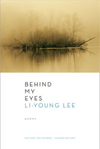
Behind My Eyes | Li-Young Lee | W.W. Norton & Company (2008)
Recommended by Iris: “This is Lee’s most recent collection — and it is stunning, as always. Figurations of the Virgin Mary intertwine with moving landscapes, conversations between the poet and his wife, the transitory spaces of travel, a chance vision of the poet’s father; all hang in a delicate, almost sacred, lumen, suspended somewhere between heaven and earth. Each poem breathes with an expansiveness and a grave tenderness that only Lee knows how to render. Behind My Eyes is sold with a CD of the poet reading some the poems in the book, and I highly recommend listening to this, as well. I had the privilege of hearing Lee read from his drafts for this book a few years before it came out, and loved the way that the intonation of his voice seamed through the lines of each poem, threading them together in a low, sonorous hum. It’s a beautiful listening experience, and adds a new and lovely textural dimension to his already melodious poetics.”
* * *
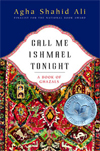
Call Me Ishmael Tonight | Agha Shahid Ali | W.W. Norton & Company (2003)
Recommended by Supriya: “This collection of ghazals shows the versatile ways in which a poetic form can go beyond its history and language while staying true to its essence. Agha Shahid Ali demonstrates the intentionality with which he overcomes expectations and boundaries by using a traditional form that often evokes feelings of longing and melancholia but writing in a contemporary English that feels timeless. Although written entirely in form, the range and depth of this collection allows for a vast expanse of emotions and possibilities and is the perfect collection with which to curl up whatever your mood.”
* * *
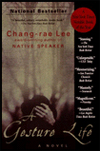
A Gesture Life | Chang-rae Lee | Penguin USA (2000)
Recommended by Ada: “Told from the point of view of Dr. Hata, a Japanese WWII veteran, this fictional memoir weaves between his experiences in a crumbling outpost of a Japanese imperial outpost in the last days of the war and his later life in gated, suburban America. The protagonist in Lee’s second novel is so reasonable it’s eerie, and though I think that we are meant to feel sorry for Dr. Hata and the stiffly respectable, appropriately understated life he has bound himself into, the distance that separates him from all the other characters in this book translates into distance from the reader. Not that the whole book left me cold: the scenes describing Dr. Hata’s encounters with Korean comfort women during the war are eye-opening, gripping, and an interesting perspective on the terrors of war.”
Continue reading “Staff Picks: Holiday Reading Recommendations”
